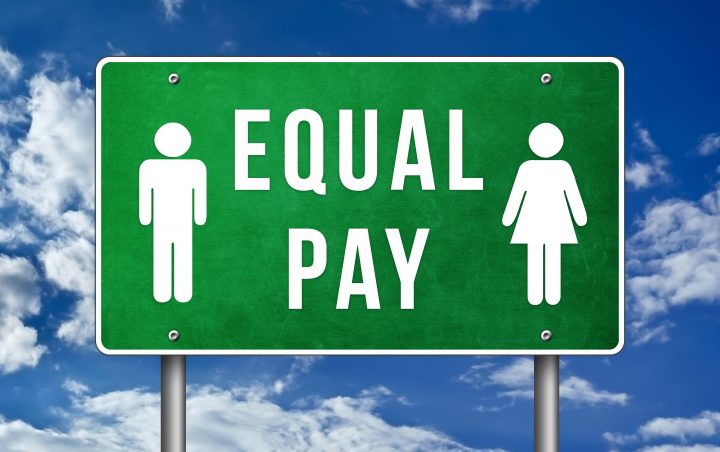A recent Statistics Canada report says Saskatchewan was among the highest in terms of the gender wage gap last year.

Male employees in the province earned $31.92 an hour on average in 2018 compared to $27.04 by their female co-workers, according to the study.
New Brunswick was closest to zero in its gender wage gap ($1.92 or 7.4 per cent) and nationally the report said Canadian women earned $0.87 for every dollar earned by men in 2018. Data was not available for Prince Edward Island or the northern territories.
Saskatchewan’s gender wage gap of $4.88 or 15.3 per cent was third-highest only behind Alberta ($6.32 or 17.6 per cent) and B.C. ($5.90 or 18.9 per cent).
Marie Lovrod, associate professor of women’s and gender studies at the University of Saskatchewan, said on Thursday that Saskatchewan has particular conditions in which it operates its economy.
“I think that trying to provide stable economic conditions in an environment that’s still is a bit boom-bust because of its reliance on resource extraction and agriculture means it’s a lot of work to get it right,” she said.
“(Saskatchewan has) a fairly large land base relative to the population that we have. I do think that different intersections of race, gender, ethnicity, age, ability and all of those things then do really factor into this.”
Lovrod added Saskatchewan has some opportunities to make significant improvements.
“The first place to work on I would say equity, in general, and gender equity, in particular. Around wage differences would be to look at inequities involving Indigenous and Métis people,” she said.
“Because there’s this long-standing gender bias that has affected Indigenous women and girls and the Indigenous people more broadly through families and communities, I think that’s a really significant place that has to be looked at across the country, but certainly in Saskatchewan.”
There’s a lot of work that comes with a report like this, according to Lovrod.
“The report makes the case that, for example, more women end up in part-time employment because of their reproductive labour/child-rearing and that does not have to be like that,” she said.
“That is something that is being structurally produced and we’ve made some efforts in terms of parental leaves available to men (but) they’re often discouraged in the workplace from taking those so there are all kinds of biases that are operating here.”
“When we’re valuing childcare. When we see that not as a private individual decision but something that is important to the reproduction of the public and the labour force then we make different policy kinds of decisions.”
Lovrod commended the authors of the research paper for identifying areas of the shift in gender equity balance, or imbalance, that were absent in the study.
“There’s quite a lot that can’t be accounted for by the measures that they have at their disposal. I think that’s also really useful because I do think that it is possible to then begin to think about how would we start to measure things like inherent bias,” she said.
“It’s better to have some information than no information and I also think that it’s good to have some framing of what we do know and what we don’t know.”
“It’s important to contextualize the gender wage gap in relation to other inaccuracies of accounting for our economic activities that begin to unpack, not only the discrimination that’s going on among humans in the ways that we organize our economies, but that is also affecting the capacity of our economies to actually be sustainable. And not in terms of infinite growth, but in terms of achieving meaningful balances.”
Lovrod hopes the report generates some creative thinking about how to make more accountable economies.
“Don’t simply function on the basis of how much they can extract from whomever or wherever for short-term gain but how they really do. Work on that sweet spot of providing well for people that are in the social order,” she said.
“Also making sure that we’re being environmentally accountable. That we’re not creating impossible life situations for some people and extraordinarily, obscenely, disconnected and enriched lives from others.”
“I think other factors that really need to be addressed … one of the effects of having a gender wage gap is that in some fields, women become desirable employees because they come in at lower wages and that’s probably the worst way to think about taking advantage of the wage gap.”



Comments